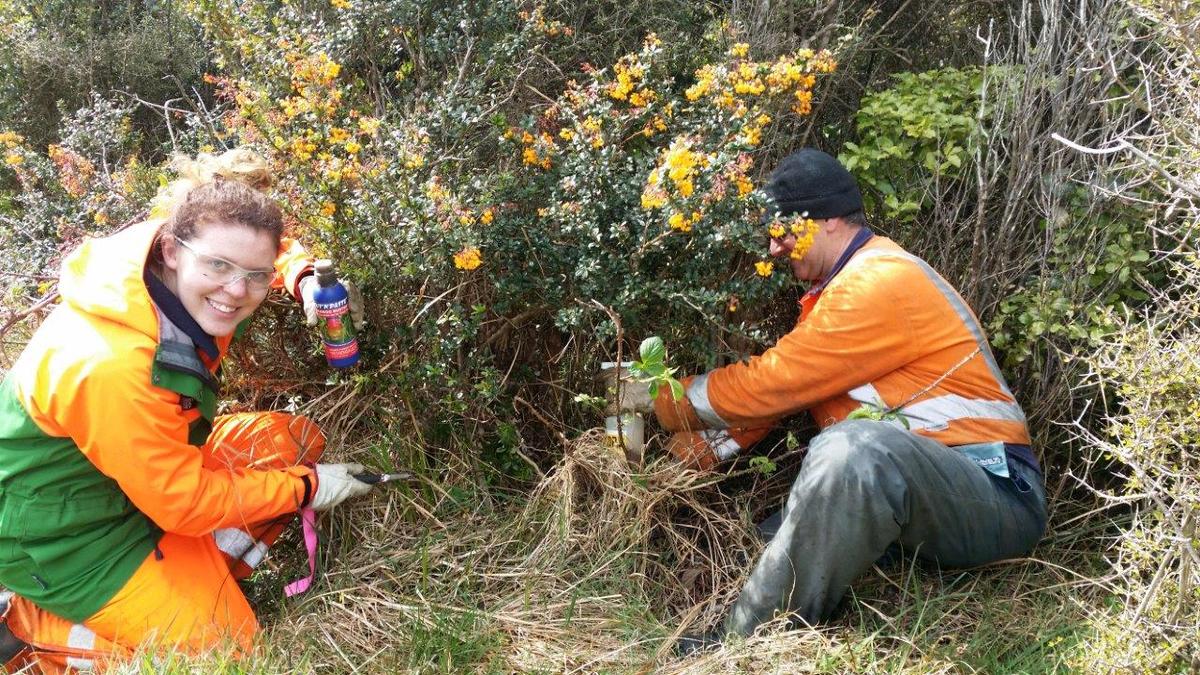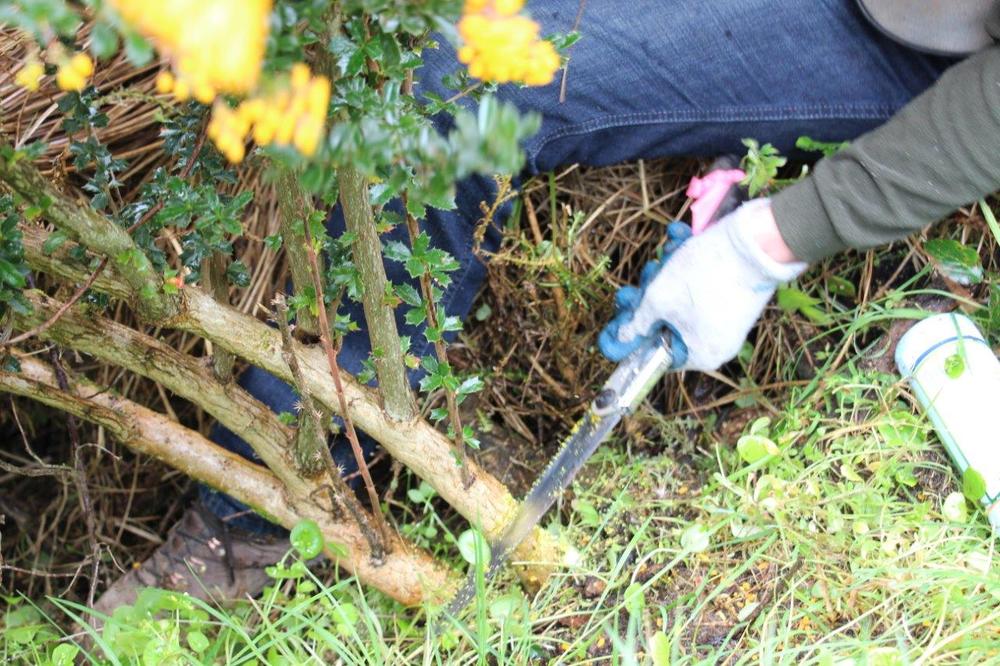Fiordland weed control buffer zone receives funding boost
21 December 2020, 1:21 AM
 Rachel Batley and Randall Milne attack barberry weed at Otatara, near Invercargill. PHOTO: Environment Southland
Rachel Batley and Randall Milne attack barberry weed at Otatara, near Invercargill. PHOTO: Environment Southland Environment Southland’s existing weed control programme in the Te Anau area has received a $690,000 boost from Conservation Minister Kiritapu Allan.
The new funding from the Kaimaki for Nature fund was announced on Friday (December 18) and will help to protect Fiordland National Park from invasive weeds and provide jobs in the local community in 2021.
The money will keep the Fiordland Buffer Zone project going for two years.
Advertisement
Advertise on the Southland App
Environment Southland chief executive Rob Phillips says the assistance is “hugely positive news’’ for the environment and for local businesses hit hard by the December 2019 floods and then COVID-19.
“This is a fantastic opportunity, [and] will help keep people in employment during the off-season, and at the same time expand our weed control work in the area.
“It’s the first time we’ve accessed the Kaimahi for Nature funding stream, and we’re thankful to the Southern South Island Alliance for supporting our application to the Department of Conservation,” Mr Phillips said.
The project involves weed control in sites throughout a 1km buffer zone alongside the Fiordland National Park, from Manapouri in the south to Milford Sound in the north.
The aim is to stop invasive species like Cotoneaster and Darwin’s barberry from entering the park and protecting the park’s biodiversity values for future generations.

Remove Darwin's barberry by cutting the stem and applying herbicide paste. For more info on how: www.pesthub.es.govt.nz. PHOTO: ES
Environment Southland biosecurity and biodiversity manager Ali Meade said councils, the Department of Conservation and private landowners had been working in the area for many years to prevent weeds from entering the park, and this project would enable them to target some areas of concern.
“Much of our previous weed control in the Te Anau area has been centred around Manapouri. This is an exciting opportunity to make a really big difference by removing weed seed sources across a much larger area . . If these weeds are not contained and spread into the park, they could have a long-term and significant impact on our taonga and one of the nation’s most loved national parks,” she said.
In the first year, work will focus on controlling seeding plants. In the second year the focus will shift to controlling any juvenile plants still left in the buffer zone.
Environment Southland will run a procurement process to distribute the work as multiple contracts, enabling existing local companies to retain staff by reassigning them to weed control through shoulder seasons.
Tender information is available by contacting [email protected].
The council will also recruit a coordinator to run the project. The role will be advertised on Environment Southland’s website early next year.



